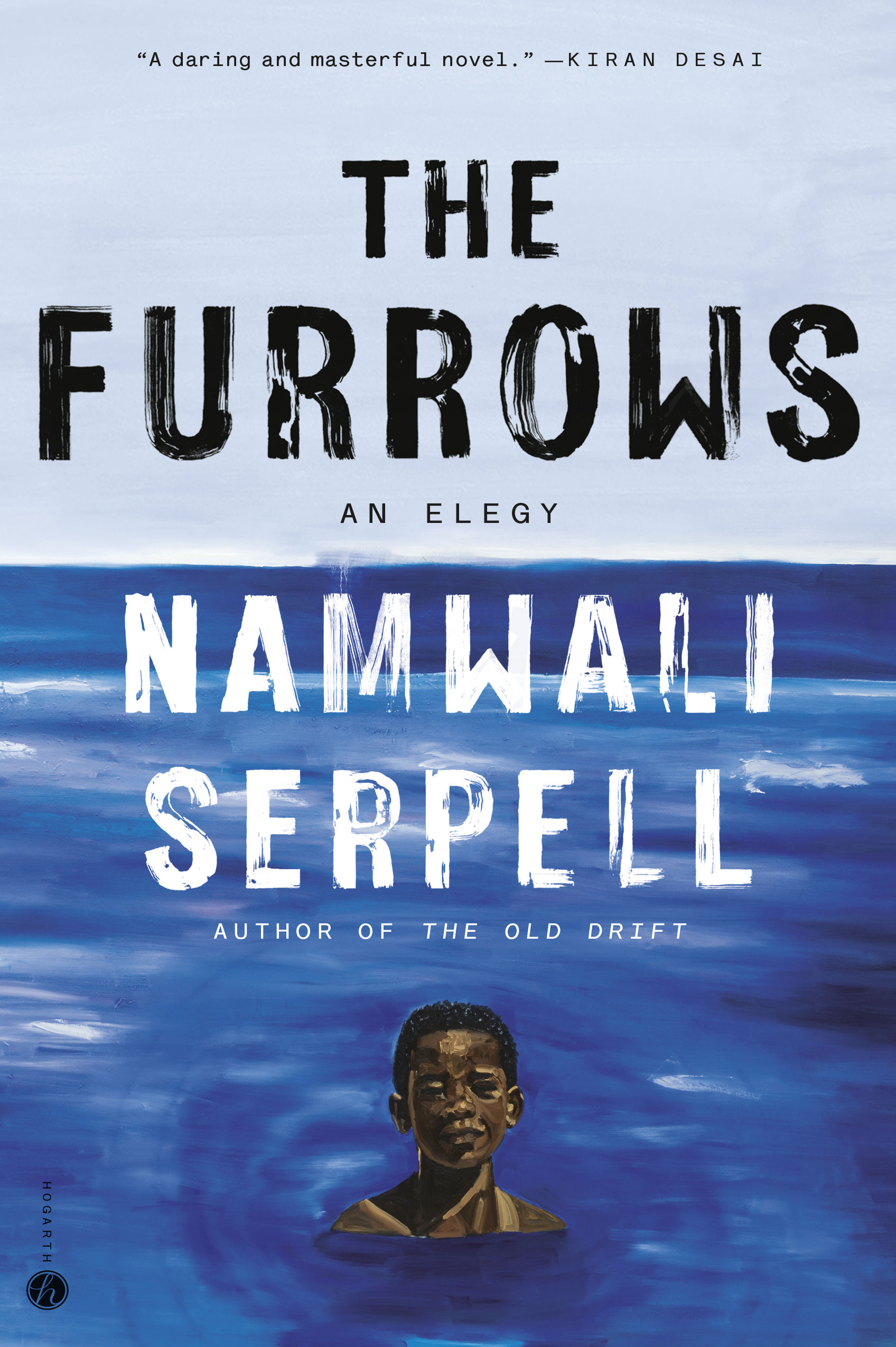Namwali Serpell is an evocative, erudite, and original writer. She mixes Gothic and Afrofuturist styles in The Old Drift, her first novel, a three-family saga that spans nearly two centuries of Zambian history (my favorite part is the recurring chorus of mosquitos). Her collection of speculative essays, Stranger Faces, a 2020 NBCC criticism finalist, showcases her wry wit and wide range of cultural interests, from Derrida to Keanu Reeves.
Her dazzling, inventive second novel, The Furrows: An Elegy (Hogarth), shifts from realistic to surreal to noir to horror, with nods to William Empsom,W.E.B. Du Bois, Toni Morrison, Virginia Woolf, Zora Neale Hurston, Alfred Hitchcock, and Toni Morrison (the title echoes a line from Morrison’s Paradise: “Beware the furrow of his brow”).
But first, above all, comes lamentation.
Beginning with her first lines, Serpell demonstrates the uncanny, eruptive rhythm of grief, as her narrator Cee recounts a loss: “I don’t want to tell you what happened. I want to tell you how it felt. When I was twelve, my little brother drowned. He was seven. I was with him. I swam him to shore.” When Wayne’s body disappears, Cee and her parents are left dealing with a harrowing ambiguity—no chance for a ritual of completion, a resolution. In the book’s first part, Serpell unfolds the impact of Cee’s sorrow and the gradual destruction of her family in a surreal, circular manner, enveloping us in the rhythmic wave-like furrows of traumatic memory, and leaving us unable to tell which of several different scenes of her brother’s death is “real.”
Midway through The Furrows, Serpell shifts narrators, from unreliable Cee, now an adult, to the man with whom she becomes romantically entangled who calls himself Wayne and looks uncannily like family. The second half, which tilts into the literary realms of crime and horror, is narrated by multiple “Wayne” doppelgängers. One of them, Will, who is inspired by Edgar Allan Poe’s “William Wilson,” came of age in juvenile detention.
Serpell weaves a love story with a revenge tale and a prison narrative and builds to an apocalyptic finale. In nuanced scenes, Serpell explores what the author called in our Lit Hub conversation “the schisms within race, between black people—both the way gender and class can divide us up and the way systemic racism structurally pits black people, especially young black men, against each other.”
This meticulously crafted novel is filled with mysteries and flashes of raw emotion, experimental in a classic sense: An elegy, a revelation for our unsettled times.
Read more about The Furrows:
Balakian finalist Lauren Michele Jackson,The New Yorker
Tope Falarin, The Atlantic
Walton Muyumba, Boston Globe
Lynn Steger Strong, Los Angeles Times



